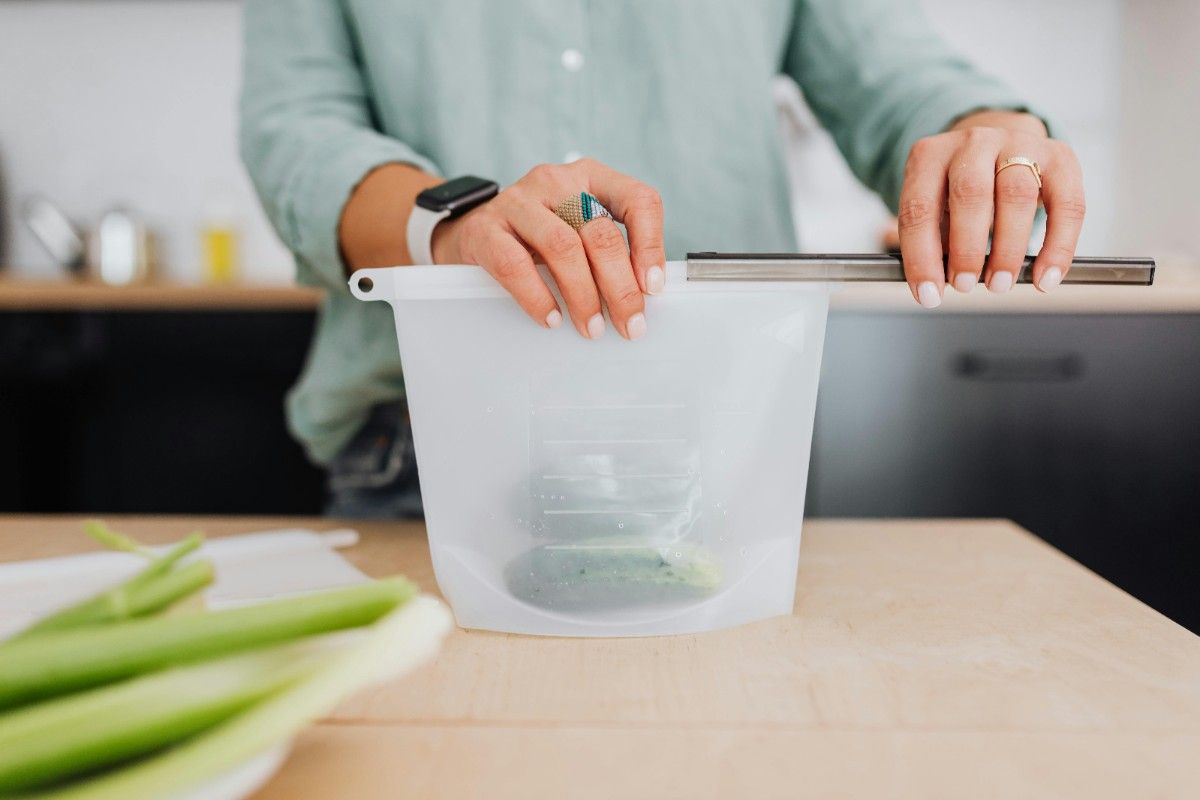Living in modern times has made us all environmentally conscious. We can choose to do something for our planet or not. And every choice will affect our planet positively or negatively. The kitchen is one of the domains where it now seems so many changes are being adopted worldwide, indeed they have become the essence of the new frontiers of sustainable innovation. It’s not just about lowering food waste and getting rid of single use plastics here — we’re shifting toward more eco friendly activities. The biodegradable cooking tools revolution, which is growing in popularity among sustainable living movements, is exactly what it’s about.
Leading this change are compostable kitchen gadgets with utensils that do what they’re supposed to but with no evidence they ever existed. We will now have a look at what these tools can be and how they can function in the long run to establish a lasting future.
Why should you understand Compostable Kitchen Gadgets?
Compostable kitchen gadgets are tools designed with a dual purpose: for the kitchen work they do to serve and go back to the earth when their life is done. Unlike traditional tools made from non-renewable resources like plastic and metal, these gadgets are crafted from biodegradable materials such as:
- Bamboo: A lightweight, durable renewable resource that is fast-growing.
- Cornstarch: A formable plant based material that can be used to make utensils, cups and plates.
- Coconut Husks: Used to provide a sustainable alternative to synthetic fiber often used in scrubbers and brushes.
- Wheat Straw: An eco-friendly alternative to using plastic bowls and containers that is actually a by-product of wheat farming.
- Mycelium: Mycelium based products are a recent and emerging solution to the problem of biodegradable packaging and tools derived from fungi.
Each of these materials is chosen because it disintegrates naturally in composting conditions, adding nutrients to the soil AND leaving nothing harmful behind.
Why Compostable Kitchen Gadgets Are So Important
The biodegradable cooking tools revolution is not a trend, but a planetary response to issues such as plastic pollution, resource depletion and climate change.
1. Plastic Pollution Solution
Today plastic pollution has turned into a serious environmental emergency: millions of tons of plastic waste spill into oceans and landfills every year. Compostable gadgets make plastic tools seem silly by eliminating the need for them!
2. Enhancing Soil Health
Compostable gadgets are what break down, and enrich the soil with organic nutrients. Besides wasting less it also serves agriculture and natural ecosystems.
3. Reducing Carbon Footprints
Producing traditional plastic and metal tools requires a lot of energy as well as producing greenhouse gas emissions. Compostable tools are generally produced from low impact processes and renewable materials, so have a smaller carbon footprint.
4. The encouraging of Circular Economy Practices
A circular economy and a revolution towards biodegradable cooking tools are very important. These tools are instead intended to be part of the natural cycle, passing through every stage of the lifecycle and ending up as waste.
5. Versatile and Stylish Designs
That doesn’t have to mean boring. There are many compostable kitchen gadgets available from simple sleek bamboo cutting boards and vibrant wheat straw bowls through to functional and attractive perches.
Top 10 Compostable Kitchen Gadgets for Your Home
If you’re ready to embrace the biodegradable cooking tools revolution, here are some must-have compostable gadgets to consider:
1. Bamboo Cutting Boards
I thought bamboo was a great choice for cutting boards because it’s naturally antimicrobial and durable. The board goes in the compost for the soil later on once it’s not longer usable.
2. Cornstarch Utensils
Cornstarch forks, knives, and spoons are lightweight, but sturdy. The great thing about them? They’re great for picnics, parties, or everyday use and completely decompose in weeks.
3. Coconut Fiber Scrubbers
They are tough but they are biodegradable scrubbers and just perfect for cleaning your pots and pans. They can be added to your compost bin when they wear out.
4. Wheat Straw Bowls and Plates
Made from durable, biodegradable and heat resistant wheat straw, products make excellent alternatives to plastic or ceramic dinnerware.
5. Compostable Coffee Filters
A good, simple way to reduce waste in your daily routine is by switching to unbleached, compostable coffee filters.
6. Biodegradable Food Storage Bags
These magnetic storage bags are made using plant based materials, and are a sustainable alternative to plastic zip bags.
7. Mycelium-Based Packaging
Although in the infancy of being developed for packaging, mycelium packaging shows promise as compostable containers areas and gadget casings.
How to Introduce Compostable Kitchen Gadget Into Your Routine
It doesn’t need to be an overhaul of your kitchen to adopt compostable kitchen tools. Here’s how you can transition smoothly:
Start with Replacements
Use garden tools made from compostable material instead of worn out plastic tools. In fact, replace an old plastic spatula with a bamboo one.
Set Up a Compost Bin
The way to make sure your gadgets selflessly decompose is through proper disposal. Most biodegradable tools can be taken home compost bins or municipal composting facilities.
Research Products
Not all eco-friendly tools are actually sustainable. Deploy certifications or transparent manufacturing processes to be sure that you’re buying authentic compostable products.
Educate Your Household
Sustainability is a group activity. Share with your family how to use and eliminate cans and packaging appropriately.
Support Sustainable Brands
Select brands that emphasize eco friendliness and adopting new biodegradable product material development. You are helping to promote the development of sustainable industries.
Challenges of adopting Compostable Kitchen Gadgets
The biodegradable cooking tools revolution is a positive shift, but it’s not without its challenges:
Cost: Compostable tools are, however, slightly more expensive than plastic or metal counterparts.
Availability: In some areas these tools may not be available, and could be inaccessible for some consumers.
Composting Infrastructure: It’s not possible for all of us to compost, and municipal composting facilities aren’t available universally.
But it doesn’t stop: the movement flourishes driven by invention and customer demand.
New and Ably Compostable Kitchen Gadgets
The future looks bright for biodegradable cooking tools, which are the subject of many ongoing innovations, all leading to more sustainable options. Some exciting developments include:
Algae-Based Plastics: Algae based materials decompose quickly and are ideal for utensils and containers so they are appropriated sources of these materials.
Fungi-Based Mycelium Products: Revolutionizing the market is mycelium that is being used to create durable, compostable packaging and tools.
Bio-Composite Materials: In these materials, natural fibers have been combined with biodegradable resins to yield strong, light materials for gadgets.
Conclusion
Small changes in our kitchens can go a long way to protect the environment: welcome to the biodegradable cooking tools revolution. Kitchen gadgets that are compostable also help reduce waste and put healthier and cleaner soil and ecosystems. Using these tools means you’re taking a very meaningful step toward a sustainable future for earth.
End Note
Your kitchen is more than a place for cooking, it’s a place for sustainability. It’s not just a trend you’re adopting, it’s a movement to preserve this planet. Using any bamboo cutting board or cornstarch spoon when you cook is a vote for a cleaner, greener world. We all can make a difference.
FAQs
1. Why are compostable kitchen gadgets different from other kitchen gadgets?
Unlike regular kitchen stuff that we dump into trash bins and lie around until they become waste, compostable kitchen gadgets are made out of biodegradable materials that simply degrade into the soil.
2. How do compostable gadgets hold up to be used every day?
Of course, these tools are meant to be strong, useful, and last till they decompose.
3. Do I throw away my compostable kitchen gadget?
You can bury them in your home compost bin or dispose of them in a municipal composting facility.
4. Are compostable kitchen gadgets safe for overall use on anything that comes into contact with food?
Absolutely. Made of non-toxic, food safe materials that meet safety standards.
5. How can I get compostable kitchen gadgets?
This is where the hunted are at eco friendly stores online or marketplaces and niche sustainable brands.
6. Why is a compostable gadget so important for the environment?
Bringing them and reducing kitchen waste also helps support soil health, and has a smaller carbon footprint than traditional kitchen tools.




